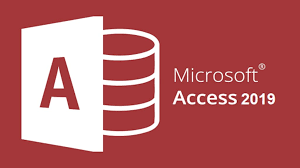English Grammar Pro | Beginner to Advanced (A1-C1) Grammar
- Description
- Curriculum
- FAQ
- Reviews

Grammar is the easy part of learning English!
-
there are rules
-
practice by yourself
-
and practice at your own speed!
To make English grammar easy, I
-
add new videos you request!
-
focus on pronunciation
-
tell you when native speakers ignore the rules in spoken conversation!
Your goal is to FINISH studying grammar
Finish studying grammar so you can become fluent and confident in the English language!
(and master exams like IELTS, TOEFL, TOEIC, FCE or CAE)
ATTENTION: There is some adult language in the live lectures that might not be suitable for children,
as live lectures may include discussion of informal English slang and other expressions meant for adult learners.
-
5Intro to parts of speech
-
6Noun categories, how to use
Learn about the main types of nouns (people, places, things, animals and ideas) and some ways we use nouns.
-
7Identifying nouns and types
Learn a few ways to recognize nouns from their word endings, as well as common nouns, proper nouns, concrete nouns and abstract nouns.
-
8Plural nouns rules
Learn all the rules for making nouns plural.
-
9Countable and uncountable
Learn the difference between countable and uncountable nouns, as well as how they work in a sentence.
-
10Collective nouns
Learn about collective nouns and why they can be both singular and plural.
-
11Compound nouns, noun adjectives
Learn about the types of compound nouns as well as how nouns can sometimes work as adjectives for other nouns.
-
12Possessive noun rules
Learn about possessive nouns as well as some of the complicated writing rules they have.
-
13Intro to pronouns
A brief introduction as to what pronouns are and why we use them
-
14Types of pronouns | subject, object, possessive, demonstrative
Learn the basics of subject, object, possessive and demonstrative pronouns as well as a little bit about what makes them different compared to similar adjectives
-
15Types of pronouns | reflexive & intensive
About reflexive and intensive pronouns, how they look the same but have different uses
-
16Types of pronouns | interrogative
All about interrogative pronouns that are used when asking questions.
-
17Intro to relative pronouns, clauses, phrases
Learn all about relative pronouns (who, which, what, etc.) as well as an introduction to clauses and phrases that are important to understand when using them
-
18Independent & dependent clauses
-
19New lectures coming soon
A little info about what is currently being worked on for the course!
-
20"To be" am, is, are
Master the present tense in English!
-
21LIVE LECTURE: To be
Master the present tense in English!
-
22"To be" questions
Master the present tense in English!
-
23Present simple
Master the present tense in English!
-
24LIVE LECTURE: Present simple
Master the present tense in English!
-
25Present simple negative: "not"
Master the present tense in English!
-
26Present simple questions "Do/does...?"
Master the present tense in English!
-
27Present simple irregular verbs
Master irregular verbs in the present tense!
-
28Present continuous and negative
Master the present continuous!
-
29LIVE LECTURE: Present continuous
-
30Present continuous questions
-
31Present simple vs continuous
-
32Have got
-
33Pronunciation: 52 most common verbs
-
34"To be" – was, were
-
35Past simple: -ed endings and irregular
-
36LIVE LECTURE: Past simple
-
37Past simple: questions and negatives
-
38Past continuous
-
39LIVE LECTURE: Past continuous
-
40Past continuous vs past simple
-
41Past habits: would, used to, past simple
-
42LIVE LECTURE: Past habits
-
43Past perfect, past perfect continuous
-
44Pronunciation: 52 most common verbs
-
45Present perfect: how to form, use 1
-
46LIVE LECTURE: Present perfect, use 1
-
47Present perfect: use 2 (just, already, yet)
-
48Present perfect: use 3 (have ever)
-
49Present perfect: use 4 (how long have)
-
50LIVE: Present perfect: uses 2, 3, 4
How to use present perfect simple with already, just and yet, "have you ever questions" and actions that continue into the present
-
51Present perfect: "for, since, ago"
-
52Present perfect vs past simple
-
53Present perfect continuous








